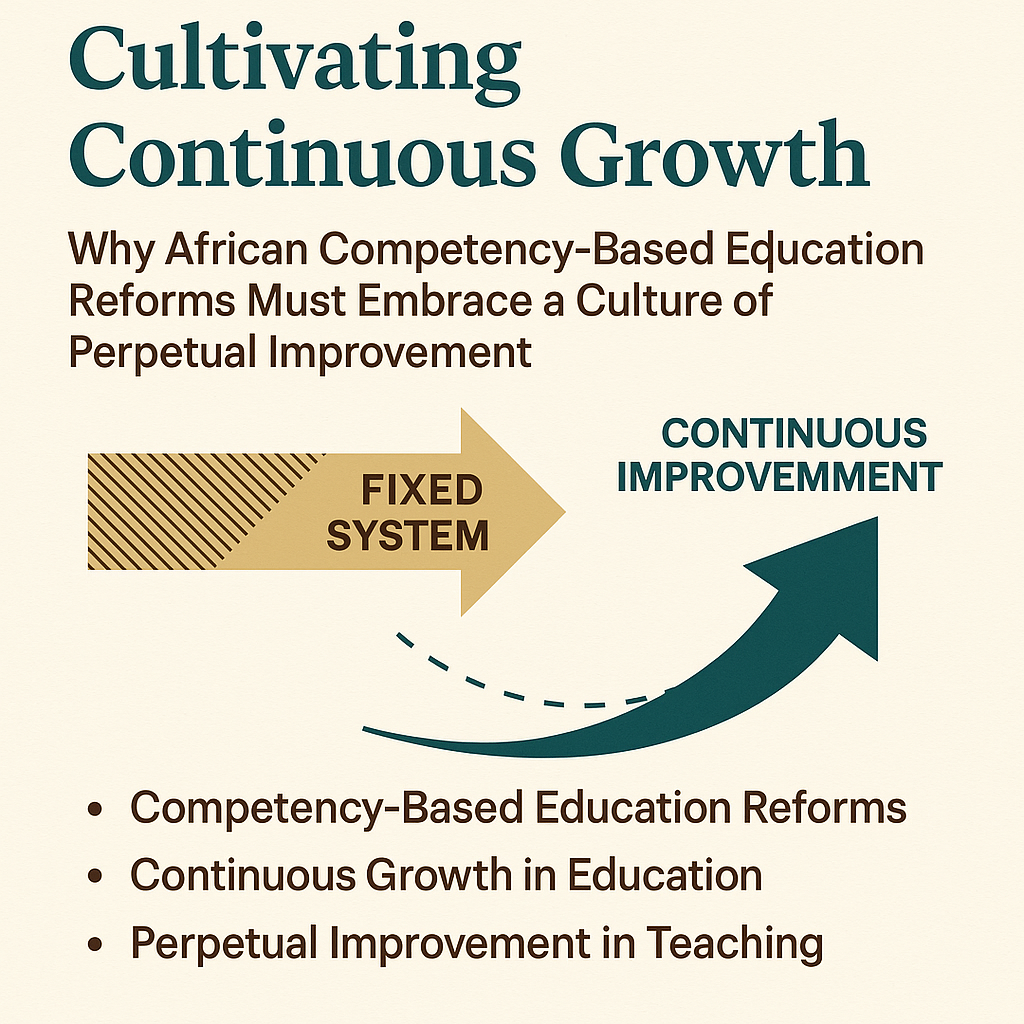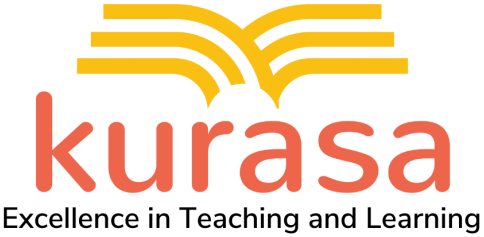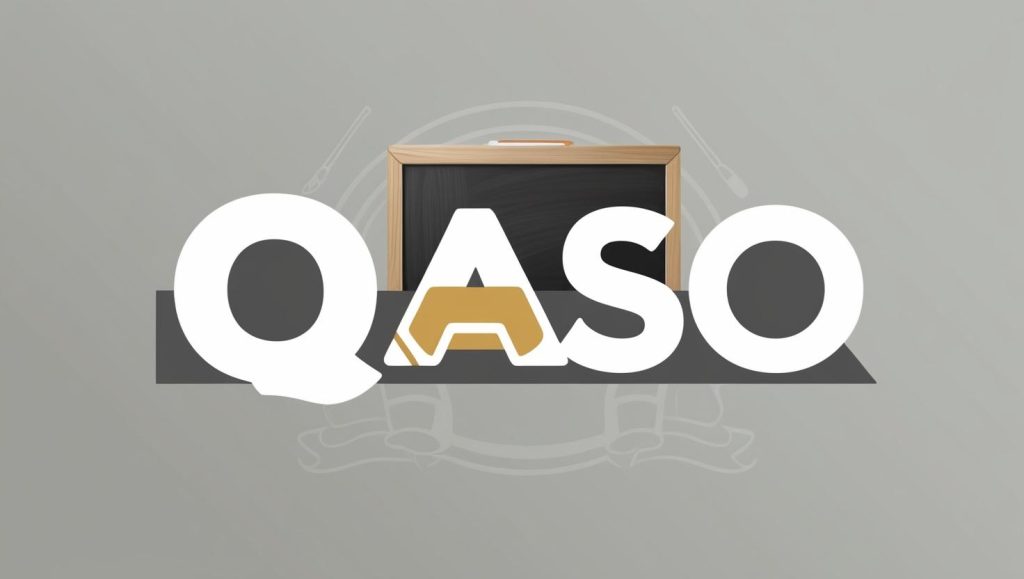African Competency-Based Education is ushering in a bold new era of learning—one centered on practical skills, real-world application, and lifelong relevance. As nations embrace Competency-Based Education reforms, the shift from traditional knowledge-based curricula to Competency-Based Curricula (CBC) reflects more than a pedagogical trend; it marks a strategic commitment to continuous growth in education. By moving beyond rote memorization, countries like Kenya, Rwanda, Ghana, Nigeria, and South Africa are embedding perpetual improvement in teaching and learning through classroom innovation, formative assessments, and teacher development. This transformation positions education reform in Africa as a foundational lever for building human capital and sustaining economic progress, with CBC implementation in Africa serving as a dynamic model for the rest of the world.

However, the true measure of success for CBC/CBE reforms lies not in achieving a static, “final” state of implementation, but in cultivating a dynamic culture of continuous self-improvement that permeates every level of the educational ecosystem.10 Quality education, by its very nature, is an “continuously evolving system” that demands constant refinement and maintenance of standards.10 This necessitates an iterative process where challenges are acknowledged as persistent, and collective knowledge and action are continuously applied to devise and implement solutions.12 The notion that educational reform can ever be “final” often leads to a cycle of fatigue among educators and a perception of endless, disconnected changes, as observed in Ghana’s reform efforts and the ongoing adjustments in South Africa.6 For African education systems, this implies that policy frameworks must inherently embed mechanisms for iterative learning, adaptation, and sustained support from their very inception, rather than treating implementation as a linear project with a definitive endpoint. This demands a fundamental shift in how educational change is conceptualized and funded, moving towards a perpetually adaptive model.
This mindset is particularly crucial for teachers, who stand as the most important change agents in shaping educational outcomes and student learning.13 Reforms frequently falter when they neglect teacher acceptance and sustained support.17 A continuous improvement approach ensures that teachers are not simply “retooled” with new methodologies but are provided with ongoing support, a clear trajectory for professional growth, and consistent opportunities for reflection and adaptation.5 This approach transcends the “deficient model” of professional development, where external experts unilaterally impart knowledge to teachers presumed to be lacking, moving instead towards a collaborative paradigm of “working with teachers”.17
Beyond Retooling: Empowering Teachers for Lifelong Learning

The transition to CBE fundamentally redefines the role of the teacher, demanding new pedagogical strategies and a deeper understanding of how to cultivate competencies in learners.8 This shift requires educators to move away from traditional, teacher-centered, rote memorization approaches towards student-centered methodologies that emphasize practical application and critical thinking.5 Consequently, effective Continuous Professional Development (CPD) becomes indispensable for building knowledge, enhancing educational practice, and ultimately improving student outcomes.13 CPD empowers educators to adapt to the evolving demands of education, stay abreast of best practices, and continuously build their expertise.21
Despite this critical need, teachers across Kenya, Rwanda, Ghana, Nigeria, and South Africa face a myriad of challenges that impede the effective implementation of CBC/CBE. A pervasive issue is the inadequacy of initial teacher training and a persistent lack of sustained professional support. In Kenya, for instance, there is an acute shortage of teachers for the CBC, particularly in Junior Secondary Schools, and even existing teachers require ongoing professional development.9 Teacher educators themselves often lack familiarity with the CBC model, which compromises their ability to guide trainees effectively.18 This results in student-teachers struggling to translate theoretical knowledge into practical classroom applications.18
Rwanda’s experience highlights similar gaps, with only a small fraction of teachers (8.6%) consulted or (20.5%) trained during the curriculum’s development.5 This limited preparation often forces teachers to revert to teacher-centered methods due to time constraints.5 Ghanaian teachers contend with outdated training curricula, insufficient professional development programs, and a notable absence of structured in-service training.19 Many teacher training colleges in Ghana also lack modern facilities, contributing to a significant digital skills gap among new educators.19 The rapid rollout of Ghana’s Standard-Based Curriculum (SBC) without adequate teacher preparation has led to widespread reform fatigue and inconsistent instructional delivery.6 Similarly, in Nigeria, teacher training institutions disproportionately emphasize theoretical knowledge over the practical skills necessary for 21st-century pedagogies 20, and in-service teachers struggle to access ongoing professional development opportunities.20 The overall level of teacher preparation for Universal Basic Education (UBE) remains low, exacerbated by inconsistent training programs and poor funding.17 South Africa also grapples with inadequate training, poor orientation to the CBE program, and teachers’ general lack of preparedness for new expectations.2 Teachers report insufficient provision of sustainable professional development programs and minimal opportunities for classroom support.14 Compounding these issues is a fundamental mistrust of teacher evaluation systems, rooted in historical politicization.23 This widespread pattern of challenges indicates a fundamental disconnect between the ambition of CBE/CBC policy design and the practicalities of its implementation on the ground. Policymakers often introduce new curricula with transformative goals but fail to adequately resource the necessary teacher capacity building and ongoing support systems. This leads to a situation where the success of a policy is not determined by its theoretical soundness but by the robustness of its implementation ecosystem, particularly the support for its human agents.
Beyond training, teachers face significant workload and resource gaps. Kenyan schools struggle with financial constraints for funding and infrastructure, notably lacking science and computer laboratories.9 The burden of record-keeping and reporting for CBC assessments also adds considerable strain.24 In Rwanda, a severe lack of teaching and learning materials, laboratory equipment, and chemical reagents is reported 5, compounded by an increased teaching load (35-40 hours per week) and large class sizes (often 60 or more students).5 Ghanaian classrooms are frequently overcrowded, with limited access to ICT tools and inadequate STEM resources.6 Rural schools, in particular, face teacher shortages due to poor incentives and infrastructure.19 Nigeria also contends with large class sizes and limited resources.20 In South Africa, time constraints, large classes, increased workload, and inadequate equipment hinder the implementation of Competency-Based Continuous Assessment Learning Activities (CALA) 2, and schools often lack funds for essential Literacy and Numeracy teaching resources.14
The prevalence of these challenges across multiple countries reveals a recurring pattern: rapid curriculum rollouts, such as Ghana’s SBC, often occur without sufficient, sustained investment in teacher development and resources.6 This directly leads to significant implementation hurdles, teacher resistance, and ultimately, compromised educational outcomes.6 This highlights that the core issue is not simply that teachers are unprepared, but rather that the systems designed to support them are often insufficient or misaligned with the demands of the new curricula.
A critical aspect of professional development in Africa is the frequent reliance on the “cascade model”.25 This model, where a small group of teachers are trained and then tasked with training their peers, is often adopted for its perceived cost-effectiveness and ability to reach a large number of teachers quickly.25 However, this approach carries a significant risk of “diluting the quality of the intended training” 26 and has documented “inadequacies”.27 The “one-size-fits-all” nature and decontextualized knowledge transfer inherent in many cascade programs, coupled with limited time for reflection, directly contribute to teachers struggling to translate theoretical knowledge into practical classroom application and adapt to new pedagogies.6 This creates a contradiction: a model chosen for efficiency might inherently compromise the quality of professional learning, perpetuating the very problem it seeks to solve. This suggests that relying primarily on the cascade model, while seemingly practical for scale, may inadvertently undermine the deeper, more nuanced preparation required for complex competency-based reforms.
The imperative is to shift from a “working on teachers” to a “working with teachers” approach.17 Traditional professional development often operates on a “deficient model” where an expert imparts knowledge to teachers who are assumed to be in need of external expertise.17 This top-down methodology, where teachers are not meaningfully involved in reform processes but are later expected to implement theoretical changes, often results in a superficial understanding and ineffective implementation.17 To counter this, a shift is needed towards empowering teachers through ownership and sustained, well-resourced professional growth opportunities.17 This involves fostering collaborative cultures and establishing professional learning communities where teachers can engage in shared learning, problem-solving, and mutual support.6
Table 1: Key Challenges in CBC/CBE Implementation Across African Countries
| Country | Teacher Training & Support Gaps | Resource & Infrastructure Deficiencies | Workload & Systemic Issues |
| Kenya | Acute teacher shortage, insufficient CPD, teacher educators unfamiliar with CBC, student-teachers struggle with practical application 9 | Financial constraints, lack of science/computer labs, burden of record-keeping 9 | Increased administrative burden 24 |
| Rwanda | Limited teacher consultation/training (8.6% consulted, 20.5% trained), difficulties with new curriculum 5 | Lack of teaching/learning materials, laboratory equipment, increased teaching load (35-40 hrs/wk), large class sizes (60+ students) 5 | Time constraints, reversion to teacher-centered methods 5 |
| Ghana | Outdated training curricula, inadequate CPD, digital skills gap, reform fatigue due to rapid rollout 6 | Overcrowded classrooms, limited ICT/STEM resources, rural teacher shortages 6 | Inconsistent instruction, lack of professional learning communities 6 |
| Nigeria | Theoretical training over practical skills, lack of ongoing CPD, low teacher preparation for UBE, inconsistent training/poor funding 17 | Large class sizes, limited resources 20 | Political interference in training, lopsided training 17 |
| South Africa | Inadequate training, poor orientation to CBE, lack of preparedness, minimal classroom support, mistrust of evaluation 2 | Time constraints, large classes, inadequate equipment, lack of funds for resources 2 | Increased workload, constant curriculum changes, administrative focus of evaluation 14 |
The Pulse of Progress: Harnessing Measurement for Classroom Excellence
In a competency-based system, assessment plays an indispensable role, shifting from a focus on mere recall to the demonstration of mastery.1 Formative assessments are foundational to CBC, providing crucial real-time feedback to both students and teachers during the learning process, in stark contrast to summative assessments that merely evaluate at the end.7 This continuous assessment is vital for teachers to identify areas where students may be struggling and to adjust their instructional strategies accordingly, aligning perfectly with the CBC’s emphasis on developing competencies rather than rote memorization.7
Effective formative assessment employs a variety of practical tools. Common types include observations, short quizzes and tests, exit tickets, peer assessments, self-assessments, learning journals, and interactive activities.29 These tools offer rich insights into student understanding, participation, and skill development, enabling teachers to pinpoint misconceptions and provide targeted feedback.29 For example, observing students as they conduct a science experiment allows a teacher to provide immediate feedback on scientific practices, while short math quizzes can quickly identify students who require additional support.29
Beyond classroom-level formative assessments, systematic lesson evaluation and constructive feedback are powerful catalysts for teacher growth. Well-designed performance-based assessments, coupled with productive feedback, have been shown to effectively measure and improve teacher effectiveness and, consequently, student achievement.23 Effective instructional supervision typically involves a three-stage process: a pre-observation conference, the classroom observation itself, and a post-observation conference.30 These structured steps provide teachers with opportunities to reflect on their pedagogical practices, identify their strengths and weaknesses, and receive targeted guidance for improvement.30 However, challenges persist, such as teachers’ fundamental mistrust of evaluation systems, particularly evident with South Africa’s Integrated Quality Management System (IQMS), and a tendency for evaluations to focus on compliance rather than genuine professional development.23 This highlights a systemic failure in establishing effective, trust-based feedback loops within the evaluation process. When evaluation is perceived as punitive or disconnected from professional growth, it loses its formative power. The absence of constructive, individualized feedback and the focus on compliance over development directly hinder continuous improvement. For evaluation to truly serve continuous improvement, it must transition from being a mere accountability mechanism to a supportive, developmental process. This requires rebuilding trust, investing in evaluators’ skills, and ensuring that evaluation outcomes directly inform personalized professional development plans, rather than being solely tied to remuneration or administrative tasks.
Leveraging technology is crucial for streamlining assessment and providing actionable insights. Digital tools can bridge supervision gaps and enhance teaching practices 18, significantly improving teachers’ day-to-day work.31 Kenya’s CBC app exemplifies this potential. It is a digital tool specifically designed to simplify competency-based assessments, record-keeping, and reporting, which were previously burdensome paper-based processes.24 The app transforms summative exam results into actionable insights, clearly identifying learning gaps by subject, topic, or competency.32 This automated analysis liberates teachers from hours of manual grading, allowing them to dedicate more time to crafting solutions and providing timely feedback.32 Crucially, the app helps to bridge the perceived dichotomy between summative and formative assessments, reinforcing the continuous improvement mindset inherent in CBC.32 It also creates longitudinal learner data, which is invaluable for personalized education pathways and generating detailed learner profiles over time.24 This represents a significant step in addressing the paradox of assessment in CBE implementation. While CBE emphasizes formative, continuous assessment, traditional high-stakes summative exams often persist. This creates a disconnect, as the policy intent is continuous, learner-centered assessment, but the systemic reality (driven by high-stakes exams and teacher familiarity) often defaults to traditional, summative approaches. The Kurasa app offers a critical pathway to bridge this gap by turning summative data into formative insights, thereby supporting teachers in navigating the dual demands of accountability and continuous learning. Without such integration, CBE risks becoming a superficial change, with underlying assessment practices perpetuating old learning behaviors.
Weaving the Fabric of Improvement: Systemic Loops for Educational Advancement
To foster a culture of continuous improvement, it is essential to explore and implement successful models and frameworks for teacher professional development. The OER Africa’s CPD framework, for instance, provides a structured pathway for professional growth, encompassing domains such as Course Design, Materials Development, Facilitating Learning, and Effective Assessment and Feedback.21 This framework emphasizes aligning CPD with institutional goals and adapting to the demands of digitalization.21
Professional Learning Communities (PLCs) represent another effective platform for collaborative learning, fostering sustained discussions on pedagogical practices, subject-specific matters, and classroom management.16 PLCs enhance teachers’ efficacy, promote innovative teaching approaches, and build trusting relationships among colleagues.16 Their success hinges on conditions such as strong leadership support, adequate infrastructure, and a clear focus on learning and teaching.28 However, implementation hurdles, including weak structural processes, insufficient time, and existing hierarchical systems, often impede their full potential.16
Mentorship programs also play a critical role in enhancing pedagogical practices, providing essential guidance, and fostering a culture of continuous learning.33 Mentorship empowers teachers to reflect on their practice, experiment with new teaching approaches, and share knowledge and expertise with colleagues.33
While often criticized for diluting quality, the cascade model of professional development remains widely adopted in Africa due to its perceived cost-effectiveness and ability to reach a large number of teachers.25 However, the critical interpretive synthesis reveals that “one-size-fits-all” training, often drawing from Anglo-American contexts, can be “decontextualized” and “ill-suited” to African realities.27 This highlights a crucial “contextualization imperative”: the transferability of CPD models is not automatic. Successful implementation requires deep adaptation that considers local socio-cultural, material, and policy environments, moving beyond mere replication.27 The Foundations for Learning (F4L) project in Kenya, Uganda, and Tanzania, for example, successfully utilized a cascade approach by incorporating an andragogy methodology that emphasized experiential and reflective practices.26 Its positive outcomes, including improved knowledge, enhanced pedagogical skills, behavioral changes, increased collaboration between colleges and schools, and greater community involvement, demonstrate that when carefully designed and adapted, even the cascade model can contribute to improving teaching methods.26 This suggests that blended learning and technology must be integrated in ways that overcome existing infrastructure and access disparities, rather than exacerbating them.
Several initiatives across the continent offer valuable lessons. The Mastercard Foundation’s “Leaders in Teaching” program, for instance, strategically invests in teachers to improve secondary education outcomes, addressing systemic challenges like poor teaching conditions and low retention rates.34 This program focuses on recruiting top graduates, training both new and experienced teachers in competency-based and student-centered approaches, strengthening educational leadership, and elevating teachers’ professional status.34 It leverages country-level programs tailored to specific needs alongside pan-African centers for innovation.34
Rwanda’s collaborative CPD efforts also provide a compelling example. CPD provision for Rwandan educators is a concerted effort involving government bodies, academic institutions, and multinational organizations.13 The country utilizes a national CPD framework and a shared leadership model, targeting school leaders, school-based mentors, and district officials to enhance teaching quality.13 Furthermore, Rwanda is actively implementing blended delivery modalities to reduce the costs associated with traditional in-person learning.13
UNICEF’s recommendations for improving education in Africa underscore the importance of strengthening teacher training pathways and providing ongoing pedagogical support, emphasizing that training must be of sufficient duration and intensity to be effective.31 UNICEF also highlights the critical role of teacher accountability, appropriate incentives, and robust pedagogical support from headteachers.31
These successful initiatives underscore the importance of data-driven decision-making and research in fostering continuous learning loops. Embedding data and research is crucial for enabling continuous improvement and facilitating timely course corrections.31 African countries are actively strengthening their Education Management Information Systems (EMIS) to transition towards individual-level student and teacher data.31 Harmonizing datasets across different education subsystems can significantly enhance analytical power, as demonstrated in Senegal’s integrated platform linking EMIS teacher data with civil service management data, school inspection reports, and learning assessment data.31 Research is vital for understanding the specific needs of teachers, students, and school systems, which in turn leads to targeted interventions, tailored professional development, and the creation of relevant learning materials.8 It helps in exploring promising approaches for nurturing life skills and values in learners.8 This establishes a critical causal loop: effective data collection and analysis are not merely for reporting but serve as the engine that drives continuous improvement. Without robust data, identifying learning gaps, tailoring professional development, and making evidence-based policy decisions become impossible. Investing in data infrastructure and data literacy for teachers and policymakers is as crucial as curriculum development itself. This means fostering a culture where data is seen as a tool for learning and adaptation, not just accountability. The ability to harmonize datasets and create feedback loops between research and practice will determine the agility and responsiveness of African education systems in their pursuit of continuous growth.
Table 2: Frameworks and Initiatives for Continuous Teacher Professional Development in Africa
| Framework/Initiative Name | Key Features/Approach | Countries/Region of Focus | Contribution to Continuous Improvement | Relevant Snippet IDs |
| OER Africa’s CPD Framework | Structured domains (Course Design, Materials Development, Facilitating Learning, Effective Assessment & Feedback), aligns with institutional goals, adapts to digitalization 21 | Africa-wide | Enhances pedagogical skills, supports effective assessment, fosters reflective practice | 21 |
| Professional Learning Communities (PLCs) | Collaborative learning, sustained discussions, shared problem-solving, peer support 16 | Global South (Africa-relevant) | Enhances teacher efficacy, promotes innovative teaching, builds trusting relationships, shifts to collective professionalism | 16 |
| Mentorship Programs | Structured guidance, refinement of teaching practices, adaptation to innovative methodologies 33 | Nigeria | Fosters a culture of continuous learning, empowers reflection and experimentation, knowledge sharing | 33 |
| Mastercard Foundation’s “Leaders in Teaching” | Recruits top graduates, trains in competency-based/student-centered approaches, strengthens leadership, elevates professional status, country-tailored programs 34 | Africa-wide | Improves secondary education outcomes, addresses poor conditions, enhances teacher retention, supports quality, relevant education | 34 |
| Rwanda’s Collaborative CPD | Collaborative effort (government, academia, NGOs), national CPD framework, shared leadership model, blended delivery 13 | Rwanda | Improves teaching quality, addresses repetition/drop-out/equity gaps, enhances leadership competencies | 13 |
| Foundations for Learning (F4L) Project | Cascade approach with andragogy, experiential/reflective practices, community involvement, differentiated instruction 26 | Kenya, Uganda, Tanzania | Improves knowledge/comprehension, enhances pedagogical skills, fosters behavioral change, increases collaboration/community involvement | 26 |
Charting the Course: Recommendations for a Future of Flourishing Competencies
The aspiration for truly transformative education in Africa, particularly through CBC/CBE, hinges on a proactive and systemic commitment to continuous improvement. This requires concerted efforts from both policymakers and educators.
For Policymakers:
To foster an environment conducive to perpetual growth, policymakers must prioritize policy coherence and sustained investment. This involves aligning educational policies to create a supportive ecosystem for continuous improvement, moving away from fragmented, short-term reforms that often lead to fatigue and inconsistent implementation.15 Crucially, there must be a sustained and increased funding commitment for teacher professional development (CPD) and essential infrastructure. Inadequate budgeting directly hinders effective training and support, as seen in Kenya’s financial constraints and Ghana’s resource deficiencies.9 This investment should extend to providing well-equipped libraries, smart classrooms, and laboratory spaces in teacher training colleges to bridge the critical digital and practical skills gap.19
Furthermore, integrating data systems for continuous learning is paramount. Policymakers should strengthen national Education Management Information Systems (EMIS) to collect and harmonize individual-level student and teacher data, enabling a more granular understanding of educational progress and challenges.31 It is vital to create robust feedback loops between research and practice, utilizing this data to inform policy design, identify successful interventions, and make timely course corrections.8 Supporting and scaling technological solutions, such as Kenya’s CBC app, can streamline assessment, record-keeping, and reporting, effectively transforming summative data into actionable formative insights for teachers.24
Finally, fostering collaborative ecosystems and “working with” teachers is non-negotiable. The approach must shift from “working on teachers” to genuinely “working with teachers,” involving educators in curriculum development and reform processes from the outset. This fosters ownership, reduces resistance, and ensures reforms are grounded in classroom realities.5 Policymakers should actively promote and fund Professional Learning Communities (PLCs) and structured mentorship programs as primary modalities for continuous teacher development, ensuring these initiatives are well-structured, have sufficient time allocated, and are supported by expert facilitators.16 Moreover, it is crucial to develop context-appropriate CPD frameworks that transcend “one-size-fits-all” cascade models, prioritizing depth, experiential learning, and situated knowledge.21 Addressing teacher welfare and motivation, including adequate salaries, timely promotions, and clear career progression opportunities, is also essential to attract and retain high-quality educators, particularly in rural and underserved areas.19 The success of continuous improvement in education is contingent upon the convergence of these two levels: policies must create the enabling environment, and teachers must be empowered and motivated to utilize these supports in their daily practice. A policy that doesn’t reach the classroom, or a teacher striving for improvement without systemic support, will both fall short.
For Teachers and School Leaders:
Teachers and school leaders are at the forefront of implementing these reforms and must embrace a growth mindset and reflective practice. This means viewing education reform as an ongoing journey of learning and adaptation, rather than a fixed destination.10 Educators should actively engage in self-reflection and seek opportunities for continuous professional development, leveraging personal growth plans as tools for their own learning journeys.13 A willingness to integrate new technologies and pedagogical approaches into classroom practice is also vital, recognizing their potential to enhance learning and prepare students for the 21st century.18
It is imperative for educators to actively utilize formative assessment and feedback. This involves integrating diverse formative assessment tools—such as observations, quizzes, exit tickets, peer and self-assessments, learning journals, and interactive activities—into daily teaching to continuously monitor student progress and provide timely, actionable feedback.7 Data from both formative and summative assessments should be used to identify learning gaps and adjust instructional strategies, fostering a truly data-driven approach to teaching.24 Furthermore, engaging constructively with lesson evaluation processes, viewing them as opportunities for professional growth rather than mere compliance, is crucial for personal and collective improvement.23
Engaging in peer learning and collaboration is also a powerful pathway for continuous growth. Teachers should actively participate in Professional Learning Communities (PLCs) and seek out mentorship opportunities to share knowledge, collaboratively solve problems, and build trusting relationships with colleagues.16 Collaboration should extend beyond the staffroom to include school leaders, parents, and the wider community, working together to address teaching and learning needs and mobilize resources.5
Finally, teachers and school leaders must advocate for supportive structures. This includes advocating for consistent, high-quality, and contextually relevant professional development programs that directly address real classroom conditions and challenges.13 They should also highlight the persistent need for reduced workload, manageable class sizes, and adequate teaching and learning materials to effectively implement competency-based approaches without undue strain.2
Conclusion: A Shared Commitment to Perpetual Educational Excellence
The ongoing transformation of African education, particularly through CBC/CBE, is not a static endpoint but a dynamic, iterative journey of continuous improvement.10 This journey is characterized by persistent efforts, the pervasive integration of improvement into all functions of the educational system, and a collective problem-solving mindset that acknowledges challenges as opportunities for growth.12 The ultimate success of CBC/CBE in Africa will depend on whether the principles of continuous improvement can transition from being mere policy mandates to becoming deeply ingrained cultural norms within schools and the broader education system. This shift from external imposition to an internal ethos is what truly sustains change.
The success of African education systems in equipping learners with essential 21st-century competencies hinges on a shared commitment from all stakeholders: policymakers, school leaders, teachers, parents, and communities.8 By investing in sustained teacher professional development, leveraging data for actionable insights, fostering collaborative learning environments, and embracing a culture of perpetual growth, African nations can truly unlock the transformative potential of CBE/CBC. This collective endeavor will ensure the delivery of quality, equitable, and meaningful education for all, fostering a future where learning is not a destination, but a continuous, flourishing journey.3 This implies that leadership at all levels must actively cultivate a “culture of learning for all members” 12, where reflection, adaptation, and collaborative problem-solving are valued and rewarded. It is about fostering an environment where teachers feel safe to experiment, learn from mistakes, and continuously refine their practice, rather than fearing evaluation or being overwhelmed by change. This cultural shift is the most profound and lasting form of education reform.
Works cited
- Competency-based learning – Wikipedia, accessed May 20, 2025, https://en.wikipedia.org/wiki/Competency-based_learning
- upjournals.up.ac.za, accessed May 20, 2025, https://upjournals.up.ac.za/index.php/jogea/article/download/3527/3680/20373
- Paradigms for Contextualizing Competency Based Curriculum in …, accessed May 20, 2025, https://www.asianinstituteofresearch.org/EQRarchives/paradigms-for-contextualizing-competency-based-curriculum-in-africa%3A-inferences-from-the-oecd-countries
- ALIGNING ASSESSMENT PRACTICES WITH THE COMPETENCE …, accessed May 20, 2025, https://aphrc.org/publication/aligning-assessment-practices-with-the-competence-based-curriculum-in-kenya/
- www.ajol.info, accessed May 20, 2025, https://www.ajol.info/index.php/rje/article/view/202582/191067/1000
- (PDF) Curriculum reforms without foundation: The effects of …, accessed May 20, 2025, https://www.researchgate.net/publication/390650296_Curriculum_reforms_without_foundation_The_effects_of_inadequate_preparation_in_curriculum_reforms_on_Ghanaian_teachers_and_the_education_system
- Competency Based Assessment Framework Early Years Education (EYE) in Kenya, accessed May 20, 2025, https://www.iicba.unesco.org/en/africa-education-knowledge-platform/competency-based-assessment-framework-early-years-education-eye-kenya?hub=266
- The Crucial Role of Research in Delivering Competency-Based …, accessed May 20, 2025, https://www.alive-reli.org/the-crucial-role-of-research-in-delivering-competency-based-education-cbe-in-east-africa/
- THE IMPLEMENTATION OF COMPETENCY BASED CURRICULUM …, accessed May 20, 2025, https://injoe.org/index.php/INJOE/article/view/143
- (PDF) Impact of Educational Policies and Reforms on Human Capital Development in Rwanda – ResearchGate, accessed May 20, 2025, https://www.researchgate.net/publication/389521983_Impact_of_Educational_Policies_and_Reforms_on_Human_Capital_Development_in_Rwanda
- A framework for continuous improvement in the South African Higher …, accessed May 20, 2025, https://repository.up.ac.za/items/7a004215-08f1-45b7-ba33-8d9dfacf903b
- Educational Reform as Continuous Improvement – ResearchGate, accessed May 20, 2025, https://www.researchgate.net/publication/237261814_Educational_Reform_as_Continuous_Improvement
- Teachers’ and Head-teachers’ Continuous Professional … – GPE KIX, accessed May 20, 2025, https://www.gpekix.org/blog/teachers-and-head-teachers-continuous-professional-development-key-data-analysis-quality
- files.eric.ed.gov, accessed May 20, 2025, https://files.eric.ed.gov/fulltext/EJ1204396.pdf
- docs.opendeved.net, accessed May 20, 2025, https://docs.opendeved.net/lib/WMYNLNVK/download/Z5LXDI8D
- cdn.unicaf.org, accessed May 20, 2025, https://cdn.unicaf.org/websites/unicaf/wp-content/uploads/2023/08/Nadia-Maxwell-FINAL-thesis2.pdf
- files.eric.ed.gov, accessed May 20, 2025, https://files.eric.ed.gov/fulltext/EJ1133011.pdf
- (PDF) An Analysis of the Challenges Teacher Educators Face when …, accessed May 20, 2025, https://www.researchgate.net/publication/388510477_An_Analysis_of_the_Challenges_Teacher_Educators_Face_when_Conducting_Teaching_Practice_in_Kenya
- files.eric.ed.gov, accessed May 20, 2025, http://files.eric.ed.gov/fulltext/ED671779.pdf
- ejournal.papanda.org, accessed May 20, 2025, https://ejournal.papanda.org/index.php/jesi/article/download/832/499
- Continuous Professional Development Frameworks | OER Africa, accessed May 20, 2025, https://www.oerafrica.org/continuous-professional-development-frameworks
- Competency-Based Education in Africa: Exploring Teachers …, accessed May 20, 2025, https://repository.up.ac.za/items/029a0040-d87d-4ddd-adbd-394989b43d30
- Teacher Evaluation in South African Schools – The Centre For Development and Enterprise, accessed May 20, 2025, https://cde.org.za/wp-content/uploads/2019/05/Teacher-evaluation-in-south-african-schools-CDE.pdf
- Transforming learning assessment with the CBC app in Kenya | Blog …, accessed May 20, 2025, https://www.globalpartnership.org/blog/transforming-learning-assessment-cbc-app-kenya
- Full article: The cascade model of teachers’ continuing professional …, accessed May 20, 2025, https://www.tandfonline.com/doi/full/10.1080/2331186X.2016.1139439
- Cascade Approach on Teachers’ Continuous … – eCommons@AKU, accessed May 20, 2025, https://ecommons.aku.edu/cgi/viewcontent.cgi?article=1230&context=eastafrica_ied
- (PDF) Teacher professional development in Africa: A critical …, accessed May 20, 2025, https://www.researchgate.net/publication/379331450_Teacher_professional_development_in_Africa_A_critical_synthesis_of_research_evidence
- A review of the empirical research literature on PLCs for teachers in …, accessed May 20, 2025, https://www.tandfonline.com/doi/full/10.1080/19415257.2023.2238728
- Enhancing Learning through Formative Assessments in the CBC …, accessed May 20, 2025, https://mykurasa.com/2024/07/enhancing-learning-through-formative-assessments-in-the-cbc-curriculum/
- The Rwandan Journal of Education, Vol.7, No2 (2024 71 Instructional Supervision and Teachers’ Professional Practices in Public, accessed May 20, 2025, https://www.ajol.info/index.php/rje/article/view/269911/254760
- Improving Education in Africa – Unicef, accessed May 20, 2025, https://www.unicef.org/innocenti/media/10126/file/UNICEF-Innocenti-Improving-Education-Africa-Brief-2024.pdf
- Turning Summative Assessments into Insights: How Kurasa is …, accessed May 20, 2025, https://mykurasa.com/2025/05/turning-summative-assessments-into-insights-how-kurasa-is-transforming-teaching-in-kenya/
- springjournals.net, accessed May 20, 2025, https://springjournals.net/articles/pdf/757610022025
- Leaders in Teaching | Mastercard Foundation, accessed May 20, 2025, https://mastercardfdn.org/en/what-we-do/our-programs/leaders-in-teaching/
- www.athensjournals.gr, accessed May 20, 2025, https://www.athensjournals.gr/education/2025-12-1-6-Awodiji.pdf
- Implementation of Competency Based Assessment in Kenya: Extent …, accessed May 20, 2025, https://rsisinternational.org/journals/ijriss/articles/implementation-of-competency-based-assessment-in-kenya-extent-of-utilization-of-competency-based-assessment-tools-and-types/


